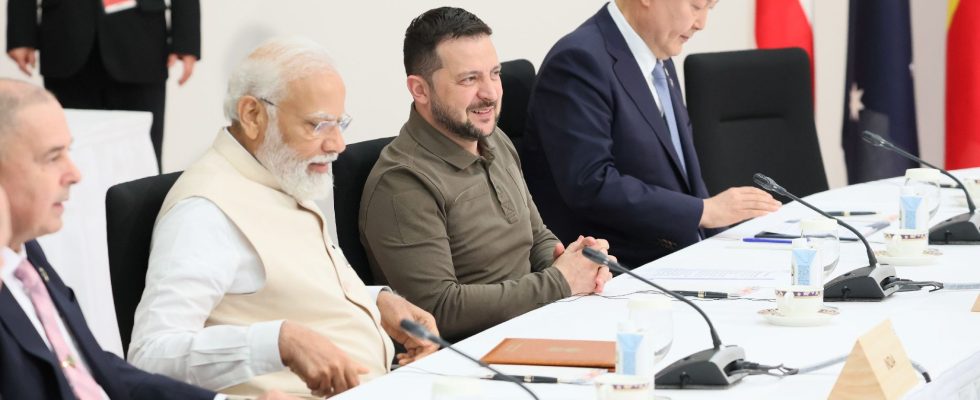We know the superstar Modi, cantor of yoga, received with great fanfare in Australia, Washington and Paris, where he will be Emmanuel Macron’s guest of honor during the July 14 parade. And there is the other face of the Indian Prime Minister, who refuses to condemn the Russian invasion of Ukraine – a position that is all the more difficult for Westerners to understand because it does not correspond to what they expect from the head of the self-proclaimed “world’s largest democracy”. But New Delhi does not want to choose. This is the principle of India’s new, ambitious diplomacy, known as “multi-alignment”. Its principle? Identify the contradictions of the great powers and exploit them for the benefit of its national interests, in particular by forging partnerships with each other.
Rather than choosing sides, the South Asian giant intends to play its own part. “In an increasingly fragmented world, marked by growing competition between China and the United States, India particularly wants to make the voice of the countries of the South heard. We do not claim rights over them, we do not not try to use force against them, just to promote the interests of those who have only limited access to resources and markets”, explained Jawed Ashraf, Indian ambassador to France, on the sidelines of a conference held for the Fondation prospective et innovation, at the Hôtel de Crillon, on June 1st.
A character, this Jawed Ashraf. Do not expect consensual formulas from this uninhibited diplomat, known for scrapping with journalists and, in this, very representative of this “new Indian diplomacy”. Talk to him about the “authoritarian excesses” of the Modi government, the tone rises immediately. India plummets in RSF’s press freedom ranking? “We are ranked behind the Taliban, do you seriously believe that?” He refutes, taking the opportunity to castigate these “New Delhi journalists, who never travel more than a kilometer from the capital”. The objective: to discredit the coverage carried out by foreign correspondents, which he considers biased.
inter
The mirror he holds up to us wants to send us back to our limits. Why did one out of two earthlings not condemn Vladimir Putin’s aggression in the last United Nations vote? “It does not mean that the rest of the world no longer believes in the principle of sovereignty or international law or that it does not sympathize with you Europeans on the war that is taking place on your soil. But the countries of the South are making choice according to their population. Should a poor country reject Russia when it wants to supply it with oil or food?
Voice of his master, Jawed Ashraf seeks to justify the balancing act of the Indian leader, whose implicit support for the head of the Kremlin is getting worse and worse in the Western Chancelleries. Without giving up. “Since the start of the war, we have said, privately and publicly, that ‘now is not the time for war’, that it must end and that both sides must return to dialogue and diplomacy. At the last G7 summit in Hiroshima, our Prime Minister told President Zelensky that he would do everything to stop the war. Where is the difference with you? In not condemning Moscow? I will answer you that we will have to be attentive to our geopolitical balances. Our gas and our oil come from Russia, like our military equipment.” To counter any moral criticism, Jawed Ashraf invokes the Chinese threat. “We have to take care of this link, because we have a major hostile presence on our border. China’s military build-up is arguably the fastest modernization and expansion in history.”
In June 2020, the two armies violently opposed Galwan, in Ladakh, causing the death of at least 20 Indian soldiers, and ending the rapprochement between Beijing and New Delhi. The “multi-alignment” stumbles on the rivalry with the other Asian giant.
